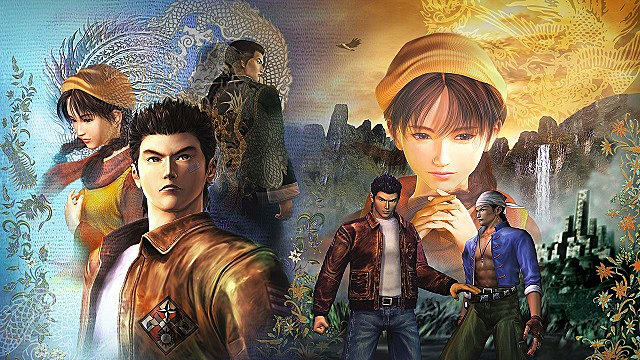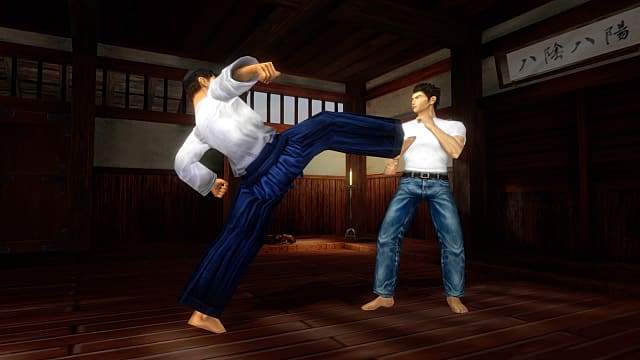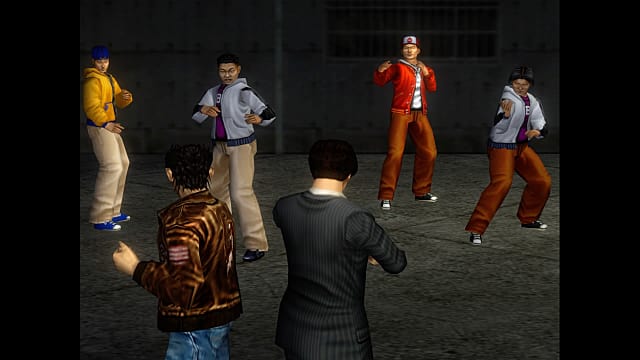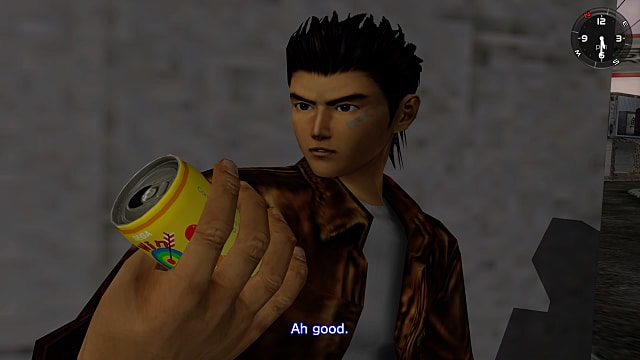

Shenmue received its first western release back in 2000, exclusively for the Dreamcast, and until now, It was never ported to any other platform. It successfully placed itself among the most expensive video game projects and its sequel -- Shenmue II -- was released a year later for the Dreamcast in Japan and ported to the original Xbox in 2002.
Neither of them enjoyed what we might think of as commercial success, but the series developed a devout following and since then has been relentlessly requested by fans for a potential re-release. Nearly two decades later, those requests came to fruition and Sega announced a compilation of Shenmue and Shenmue II for current-gen consoles and PC earlier this year.
Shenmue is officially back, but was it worth the long wait?
Shenmue Remastered?
First and foremost -- what's new about this particular compilation? It's excellent for anyone who's about to acquaint themselves with the series, but what's in store for those who intend to revisit the saga?
Both games run in HD and are displayed in a 16:9 aspect ratio -- though cutscenes still run in 4:3 -- and some minor options for graphical adjustments have been added. Some textures may seem dated, but seeing the game run at 1080p does make the picture slightly more appealing. Overall, it is worth noting that Shenmue and its sequel are nowhere near on par with modern graphical standards, but both have aged well and still look surprisingly good.
Another important aspect of the visual design -- the UI -- has been updated for current platforms; menus look and feel more streamlined and a form of fast-travel has been added to certain locations.
Many may be pleased to find out that both English and Japanese voice over options are available, as well as corresponding subtitles; Corey Marshall is well regarded for voicing the game's main protagonist in the English version, but some of the lesser characters have been neglected, so it's a welcome thing to have an additional option.
Another improvement, which doesn't seem to be mentioned a lot is the improved loading time. No doubt due to the superior hardware, transitions between locations are almost instantaneous making the whole experience quite seamless. There are, of course, other minor additions and improvements, but I'll get to what's really important.
Shenmue 1+2
Shenmue's biggest strength is its story; it's why it has become timeless and even inspired series like Yakuza. Its plot revolves around a young martial artist by the name of Ryo, who finds himself on a destructive path of revenge after witnessing the murder of his father. In pursuit of the killer, Ryo will explore various locations across his hometown Yokosuka in Japan, Hong Kong and even a secluded village in southern China, all of which will lead him to uncover many mysteries pertaining to his family.
Ryo himself is an impulsive character; he's a young teenager and is, understandably so, blinded by vengeance. In Shenmue, he quickly develops into a more formidable fighter. However, in Shenmue 2, he meets a mentor of sorts, develops as a person and regains his composure as he takes his journey across the sea.
This development is greatly supplemented by the many diverse characters Ryo encounters along the way, the superb musical score adding the necessary tone to each event, and is what makes Shenmue rise above the status of a predictable revenge-tale.
In terms of gameplay, Shenmue is a third-person action-adventure game with a heavy emphasis on exploration. If you've played any of the Yakuza games, then you will find yourself right at home. A great deal of time is spent exploring the various environments, visiting shops, conversing, gathering information and accumulating it in Ryo's notebook.
The locations within the game feel genuine -- people go to work, stores have an opening and closing time and you can pretty much interact with any of them. Most objects can be closely examined revealing additional information, though some interactions may be easily missed since you need to view each object of potential interest in first person mode for a prompt to appear.
Shenmue's environments may feel limited compared to current open-world games -- restrictive even -- but it can be a good thing since it doesn't overwhelm the player with too many choices and doesn't feel like an endless slog. Shenmue 2 improves upon that, greatly increasing in terms of size and scope, up to the point where a map is mandatory.
Eventually, you will stumble upon a point which requires you to wait for the next event to trigger, likely due to a potential point of interest being inaccessible. Apart from sleeping, which is only available during certain hours, there is no option to skip time and this is where the many activities and pastimes Shenmue is known for, come into play.
There are arcades with classics by Sega, darts, slot machines, arm-wrestling and much, much more. Ryo will spend a great deal of time playing games and earning prizes, but often enough beating a Hi-Score won't suffice and he will also have to beat up people.
Combat also plays a pivotal role in Shenmue and there's more than enough of it throughout. Ryo will face everyone, starting from mere bullies and gang members to formidable martial artists, including some tough boss battles. The player has punches, kicks and certain throw moves at their disposal; new moves can be discovered in the environment, learned from other masters or purchased in stores, in the form of scrolls.
However, it's not enough to just purchase a move to instantly become Bruce Lee -- moves have to be learned first. This can be done by practicing various button combinations until a prompt of a successfully learned move appears on the screen. Furthermore, moves can be improved by sparring with a partner or during an actual battle.
Some progress, like learned moves and collected items, can be carried over into the sequel by using the completed save data from Shenmue and a neat little feature of taking snapshots anywhere in the game -- even during cutscenes -- is included in Shenmue 2.
The sheer variety of gameplay, the interactions between characters, the beautiful musical score, and the quality of each aspect -- including combat, exploration, mini-games, and story -- is what keeps the game from becoming monotonous, but does it mean everything is perfect?
Almost, but not quite. The controls often feel sluggish and the camera can be annoying sometimes, especially indoors and during combat. I also noticed that some sound effects -- when performing a move or opening a door, for instance -- would occasionally not play. Still, these are minor gripes and shouldn't hinder the otherwise impeccable experience.
It's hard not to recommend Shenmue 1+2 to anyone who appreciates exceptional storytelling and highly interactive environments and if you've ever felt the urge to experience the unique appeal of these classic titles by Yu Suzuki, then this compilation is the best way to go.
Shenmue 1+2 is available right now for PS4 and Xbox One via Amazon, and for PC via Steam at the price of $29.99.
Editor's Note: This is a community review of Shenmue 1+2 for consoles. You can find the official GameSkinny review for the PC version here.



0 comments:
Post a Comment